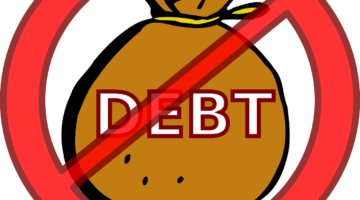People who file bankruptcy almost never “go to court” in Chapter 13 or see a judge. The only mandatory hearing will take place about a month after filing. That meeting with the trustee provides him or her an opportunity to ask questions about the budget and proposed repayment plan. Cre A portion of the meeting usually lasts no more than five minutes. Although they may have to be there longer to wait their turn. The hearings are nothing to beRead more
Making Chapter 13 Plan Payments
What Should You Expect? Clients in Chapter 13 bankruptcy can make their Chapter 13 plan payments several ways. In Iowa the Chapter 13 trustee doesn’t accept personal checks and can’t do withdrawals from bank accounts but money orders or cashier’s checks can be mailed to the trustee each month. The debtors’ name and case number should be put on the money order or cashier’s check. The best way to make plan payments is a wage deduction order. These wage deductionsRead more
Right to Cure Credit Card Debts
What Are Your Rights in Iowa? Iowa law requires a creditor to provide a debtor with a written notice of their right to cure a delinquent amount. This must happen before a lawsuit can be filed to collect a consumer debt. The notice must provide the debtor at least 20 days to pay the defaulted amount. The notice to cure also has to include a statement of the total amount to be paid, plus an itemization of the charges. FailureRead more
Independent Foreclosure Review Payments
Have You Received a Foreclosure Review Payment? Several clients have begun receiving checks as a result of errors made by mortgage servicers. Unfortunately, the payments don’t begin to cover the actual loss suffered by many who lost their homes to foreclosure. Or if they had to put up with multiple mortgage loan modification errors or problems. Nearly four million people are eligible for the payments. The payments range from $300 to $125,000 depending on the type of servicing error. Only aboutRead more
Will There Be More Chapter 11s?
Why More Chapter 11s? When the 2005 bankruptcy law was adopted by Congress it created a new “means test” that borrowers had to pass to qualify for a Chapter 7. Congress limited this requirement only to debtors with primarily consumer debt. Debtors who had incurred most of their debt from a failed business could avoid having to pass the means test in order to file Chapter 7. The provision allowed business debtors to file Chapter 7 even though their budgetRead more
Student Loans in Your Budget
How much student loan debt is reasonable? For example, student loan debt of $25,000 is affordable for a single person with an annual income of $30,000 to $40,000. If the debt increases to $50,000 someone earning only $40,000 to $50,000 annually is going to face budget problems. At that amount of debt, student loan payments would be about $450/month, almost equal to what would be spent on food. Student loan balances of $75,000 require an annual salary of $60,000 orRead more
Mortgage Modifications
Mortgage Modifications Success & Failure A new report released in January 2013 from the NCLC reveals both the successes and failures of mortgage modification programs used by top mortgage lenders and servicers. As many as ten million homes are still estimated to be at high risk of foreclosure. With nearly four million foreclosures having been completed between 2007 and 2012. The report looks at the track record of the Home Affordable Modification Program, created in 2009 to address the needRead more
Before You Agree to A Debt Management Settlement Scams… Read This
Each year, one of our clients discloses that before contacting us about bankruptcy they had tried to settle their debts with the help of a debt settlement company. In every case the company led our clients to believe their debts could be settled without the need for bankruptcy. Our clients had frequently paid thousands of dollars to the companies with little relief to their overall financial situation. What Happens In These Scams? Even if one or two of the debtsRead more
How Does A “Chapter 20” Bankruptcy Work?
Most people are familiar with Chapters 7, 11, 12 and 13 of bankruptcy. Chapter 12 is for family farmers. Chapter 11 is often used by large corporations. Chapters 7 and 13 are used for consumers But what’s a “Chapter 20?” You won’t actually find mention of Chapter 20 anywhere in the bankruptcy code but it’s the commonly used name for a Chapter 13 following a Chapter 7. But why would anyone file two bankruptcies, one right after the other? HereRead more
Burying Your Head?
The debt was so out of control she almost felt like she deserved the punishing phone calls she was getting from her creditors. In fact, she got to the point where she was just too frightened to answer her phone anymore. They found out where she worked and tried to reach her boss. They threatened to arrest her at her office. They called her names, used profanity and made her feel like a failure. Finally one day she said, “EnoughRead more
- « Previous Page
- 1
- …
- 10
- 11
- 12
- 13
- 14
- 15
- Next Page »












